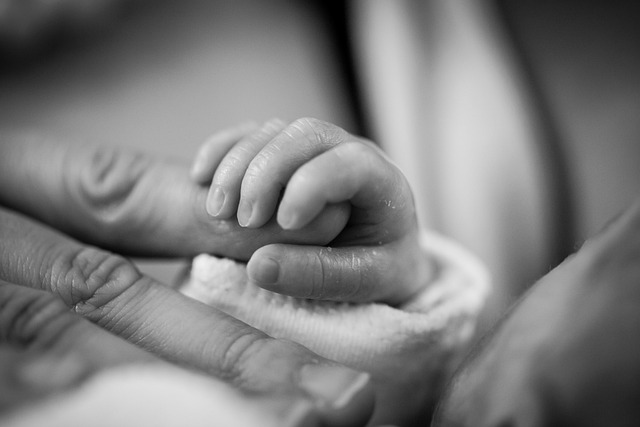To secure a legally recognized birth certificate translation in the UK, individuals must engage with certified translators endorsed by professional bodies like the Institute of Translation and Interpreting (ITI) or the Chartered Institute of Linguists (CIOL). These translations must be precise, include a signed statement of accuracy, and bear the translator's contact details and official certification. They are critical for legal and administrative processes, including citizenship, visas, and other immigration matters. The acceptance of these translations UK-wide ensures they meet the high standards required by governmental bodies such as the Home Office, which stipulates that translations should be in widely spoken languages in the UK. Employing a professional translator well-versed in 'birth certificate translation UK' protocols is essential to ensure legal and administrative compliance across various departments. This process involves identifying the correct issuing authority for the original birth certificate, engaging an accredited translator, and obtaining endorsements from authorized entities like the Public Records Office or a notary public to validate the translation's authenticity. This comprehensive approach ensures that the translated document is legally recognized and accepted in the UK.
When navigating the UK’s administrative landscape, understanding the requirements for a birth certificate translation is paramount. This article delves into the nuances of certified birth certificate translations accepted by UK authorities, ensuring individuals from diverse backgrounds can seamlessly integrate their documents within British legal and governmental frameworks. We explore the accepted languages, the stringent standards these translations must meet, and the pivotal role they play in various contexts. Additionally, we provide a clear guide on how to secure a certified birth certificate translation in the UK, highlighting the benefits of engaging with accredited translation services that specialise in this niche area. Whether for immigration, legal matters, or official registration, this piece serves as an essential resource for anyone requiring a birth certificate translation that meets UK standards.
- Understanding the Requirements for Birth Certificate Translation in the UK
- The Role of Certified Translations in UK Legal and Governmental Contexts
- Accepted Languages and Standards for Birth Certificate Translations in the UK
- Steps to Obtain a Certified Birth Certificate Translation in the UK
- Accredited Translation Services Specializing in Birth Certificates for UK Use
- Navigating the Legal Framework for Birth Certificate Translations in the UK
Understanding the Requirements for Birth Certificate Translation in the UK

When individuals require a translated version of their birth certificate for official purposes within the UK, it’s imperative to understand the specific requirements set forth by the authorities responsible for accepting such documents. The United Kingdom’s Home Office and other governmental bodies often necessitate that foreign-issued birth certificates be translated into English by a professional translator who is certified and recognized by the relevant institutions. These translations ensure accuracy and reliability, which are crucial for legal, immigration, and official processes.
Prospective applicants should seek out translators who are members of the Institute of Translation and Interpreting (ITI) or the Chartered Institute of Linguists (CIOL), as these bodies uphold strict standards of quality and ethics within the translation profession. Additionally, the translated birth certificate must be accompanied by a statement from the translator declaring that it is a true and accurate translation of the original document, along with the translator’s signature, full name, contact details, and a stamp or official seal. This documentation process guarantees that the UK authorities can trust the authenticity of the translated birth certificate, thereby facilitating its acceptance for various official requirements.
The Role of Certified Translations in UK Legal and Governmental Contexts

When individuals born outside of the UK require official documentation for legal or governmental purposes within the country, a certified birth certificate translation UK plays a pivotal role. In the UK’s legal framework, original documents from non-English speaking countries must be translated into English by professional translators to facilitate understanding and compliance with legal requirements. These translations are not merely linguistic conversions; they are authoritative interpretations that are legally recognized. The Home Office, UK Visas and Immigration (UKVI), and other government departments stipulate that translated documents must be accompanied by a statement of accuracy signed by the translator, along with their contact details and official certification confirming the translation’s authenticity. This process ensures that personal records such as birth certificates are accurately represented in English, which is crucial for applications for citizenship, visas, and other legal matters. The acceptance of certified birth certificate translations UK-wide underscores the importance of this service in the seamless functioning of administrative processes and legal proceedings within the UK’s diverse society. Translators accredited by relevant professional bodies, such as the Institute of Translation and Interpreters (ITI) or the Chartered Institute of Linguists (CIOL), are typically entrusted with this task to guarantee the integrity and reliability of the translated content.
Accepted Languages and Standards for Birth Certificate Translations in the UK

When individuals require a birth certificate translation that is accepted by UK authorities, it’s imperative to understand the accepted languages and standards for such translations. The United Kingdom, comprising England, Scotland, Wales, and Northern Ireland, has specific guidelines regarding the acceptance of foreign-language birth certificates. Translations must be accurate and complete, reflecting all information as it appears on the original document. For translations to be recognized by UK government institutions, they should adhere to Professional Translator Associations (PTAs) or Institutes’ standards.
The Home Office sets out clear requirements for certified translations of documents, including birth certificates. These translations must include a statement of accuracy by the translator, along with their contact details and official stamp or seal. The accepted languages for these translations are typically those widely used in the UK, such as English, Welsh, Gaelic, and occasionally other European languages, depending on the context and the specific requirements of the authority requesting the document. It’s crucial for translators to be familiar with the ‘Birth certificate translation UK’ standard to ensure their translations are valid and accepted across various departments, including immigration services, educational institutions, and legal entities. Utilizing professional translators who specialize in this niche ensures compliance with the necessary regulations, facilitating a smoother process for individuals interacting with UK authorities.
Steps to Obtain a Certified Birth Certificate Translation in the UK

When the need arises to obtain a certified birth certificate translation in the UK, individuals must navigate through specific procedures to ensure the document meets the necessary legal standards for acceptance by UK authorities. The process begins with identifying the appropriate issuing authority for the original birth certificate, which could be the General Register Office (GRO) for England and Wales, the National Records of Scotland (NRS) for Scotland, or the General Register Office for Northern Ireland (GRONI). Once the original document is secured, the next step involves requesting a certified translation. This is not a simple word-for-word translation; it requires a qualified translator who has been accredited by a professional translation body, such as the Institute of Translation and Interpreting (ITI) or the Association of Translation Companies (ATC), to translate the birth certificate into the required language.
The certified translator must then certify their translation. This involves signing a declaration that the translation is accurate and complete, and attaching a statement to this effect. For additional assurance, the translation may also be stamped with the translator’s official seal or stamp if applicable. Finally, to ensure the translated birth certificate holds the same legal weight as the original, it must be endorsed by the Public Records Office or a notary public in the UK. This final step verifies the identity of the translator and confirms the translation’s authenticity, making it acceptable for use with UK authorities.
Accredited Translation Services Specializing in Birth Certificates for UK Use

When individuals require the translation of birth certificates for official use in the UK, they often seek out specialized services that can provide certified translations compliant with UK regulations. These accredited translation services specializing in birth certificates for UK use are essential for those who were born overseas and need to present their birth certificate for legal, residential, or official purposes within the United Kingdom. The translation must not only be accurate but also must carry the same legal weight as the original document. This is where professional translators come into play; they ensure that each translated birth certificate adheres to UK standards by including a certificate of accuracy and a statement confirming that the translation is a true and exact representation of the original document.
Choosing a reputable birth certificate translation service in the UK ensures that your translated document will be accepted by government bodies, educational institutions, and other official entities. These services often have a team of expert linguists who are not only proficient in both the source and target languages but are also well-versed in the nuances of legal language and documentation standards. This expertise is crucial for maintaining the integrity of the document’s purpose, whether it’s for visa applications, citizenship purposes, or enrollment in UK educational institutions. With a focus on precision and compliance with UK law, such services provide peace of mind to those navigating the requirements for using foreign birth certificates within the UK.
Navigating the Legal Framework for Birth Certificate Translations in the UK

When individuals require birth certificate translations in the UK, it is imperative to navigate the precise legal framework that governs such documents. The General Register Office (GRO) for England and Wales, the National Records of Scotland (NRS) for Scotland, and the General Register Office for Northern Ireland (GRONI) each have their own set of regulations regarding the translation and acceptance of birth certificates. These translations must be certified to ensure their authenticity, a process that involves having the translated document accompanied by a statement from the translator affirming their accuracy and veracity. This certification is crucial for UK authorities to accept such translations as equivalent to the original document. For those residing outside of the UK or foreign nationals within the UK, engaging professional translation services that are accredited and familiar with the specific legal requirements will guarantee the proper handling of birth certificate translations. The acceptance of these documents is essential for various purposes, including visa applications, citizenship, and legal identity verification processes. Thus, when dealing with birth certificate translation in the UK, adhering to the established legal framework is vital to ensure the document’s validity and legal recognition by UK authorities.
When navigating the necessary steps for a birth certificate translation to be accepted by UK authorities, understanding the nuances of the legal framework and the required standards is paramount. This article has delineated the critical aspects of this process, ensuring that individuals can ascertain the appropriate measures for their certified birth certificate translations to be recognized within the UK’s legal and governmental contexts. Whether one is seeking to adopt, verify identity, or comply with immigration regulations, adhering to the accepted languages and translation standards is essential. By engaging with accredited translation services specializing in UK use, applicants can secure certified translations that meet all legal requirements. With this guidance, individuals can confidently proceed with their applications, knowing their translated birth certificates will be acknowledged by UK authorities.
